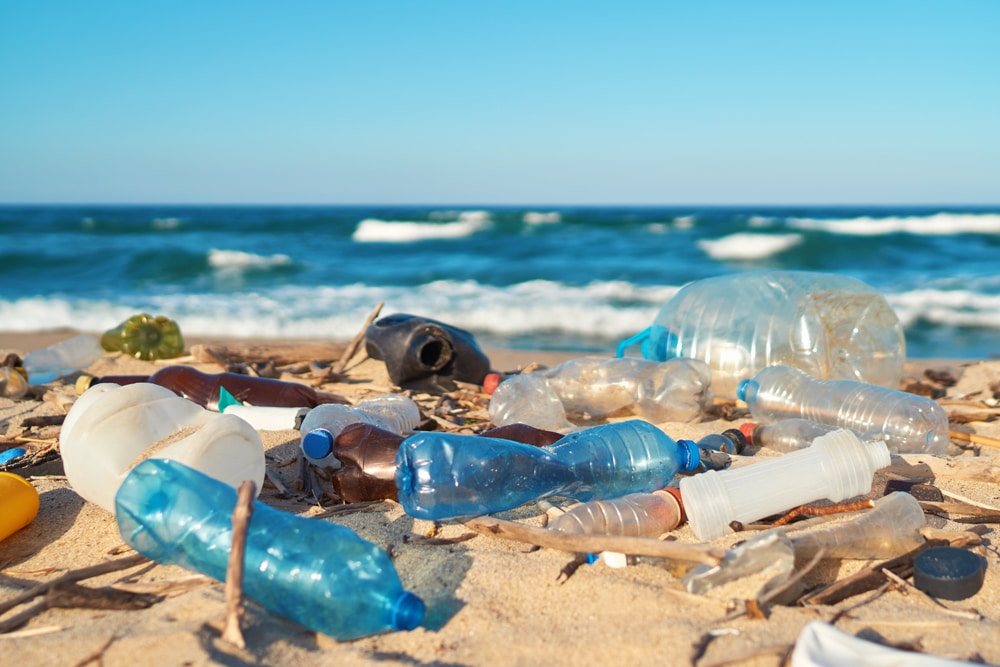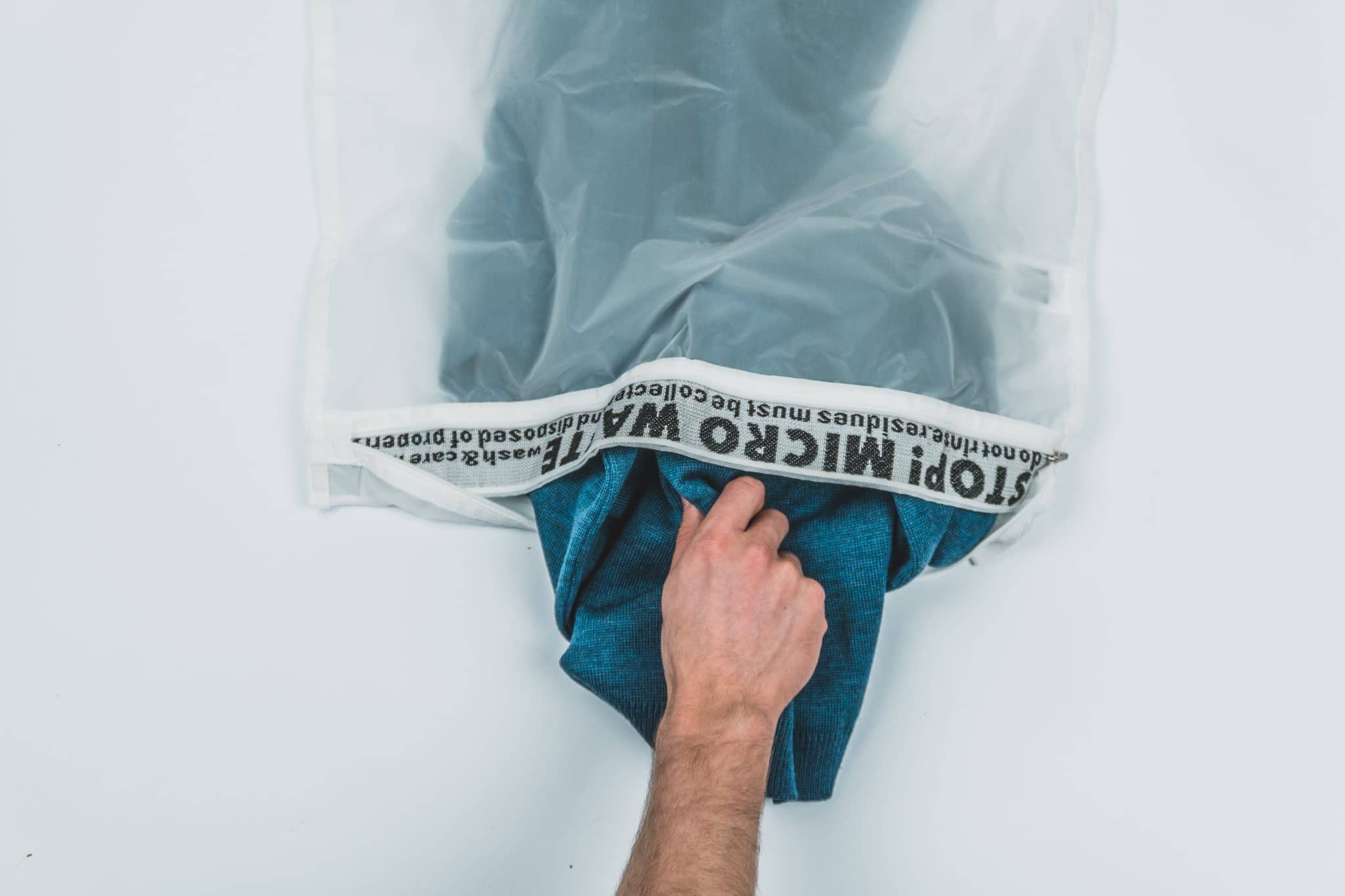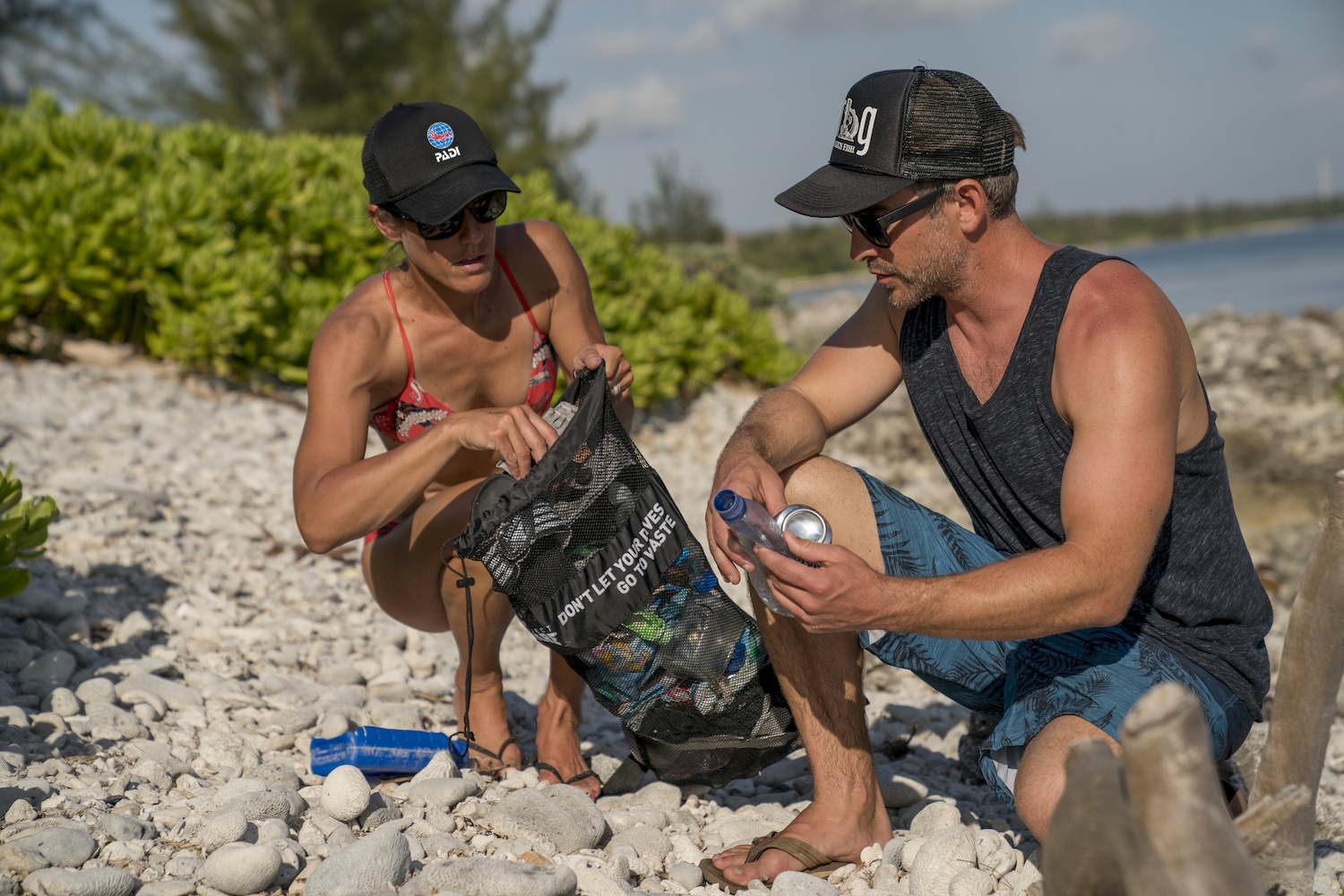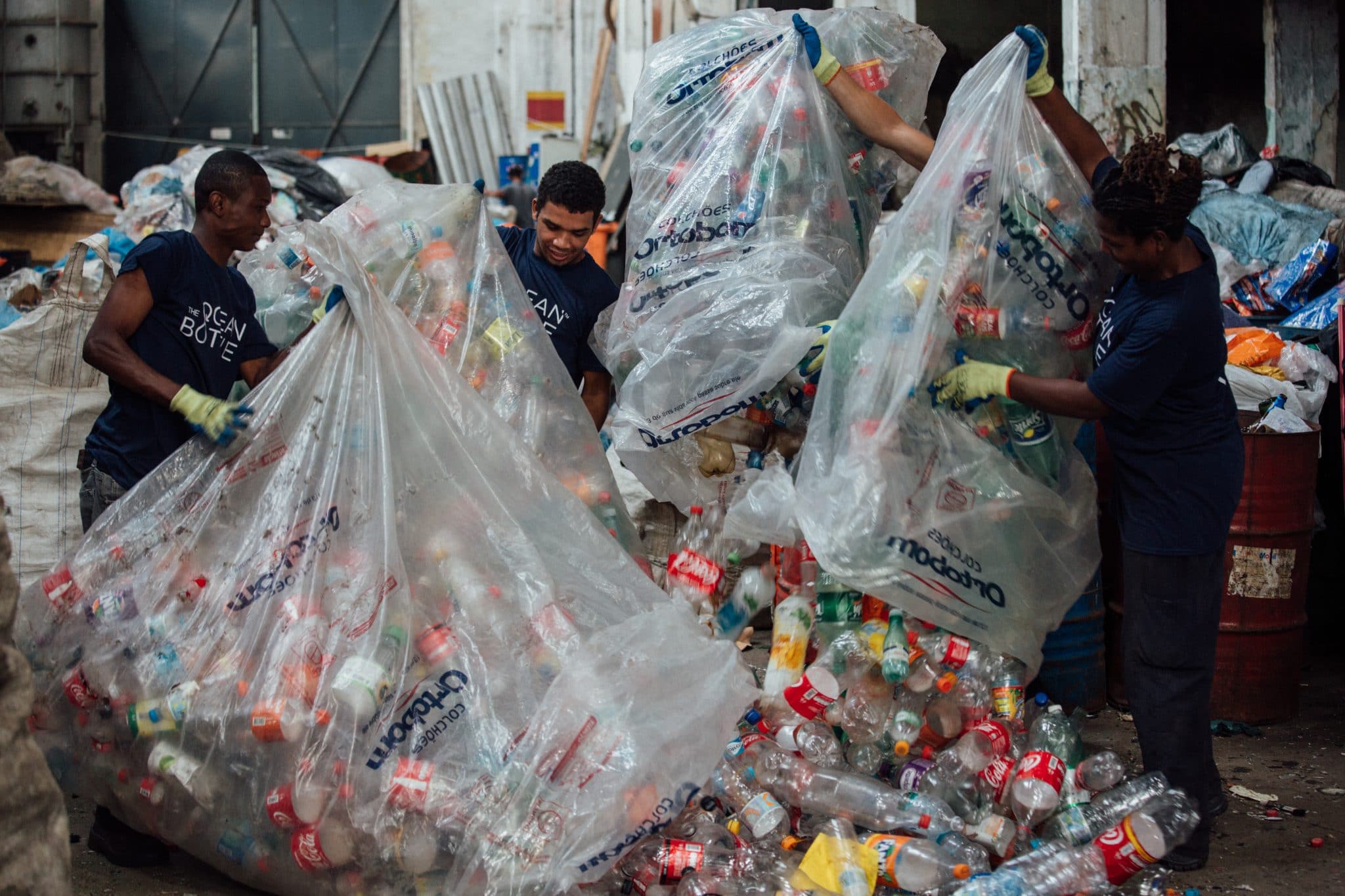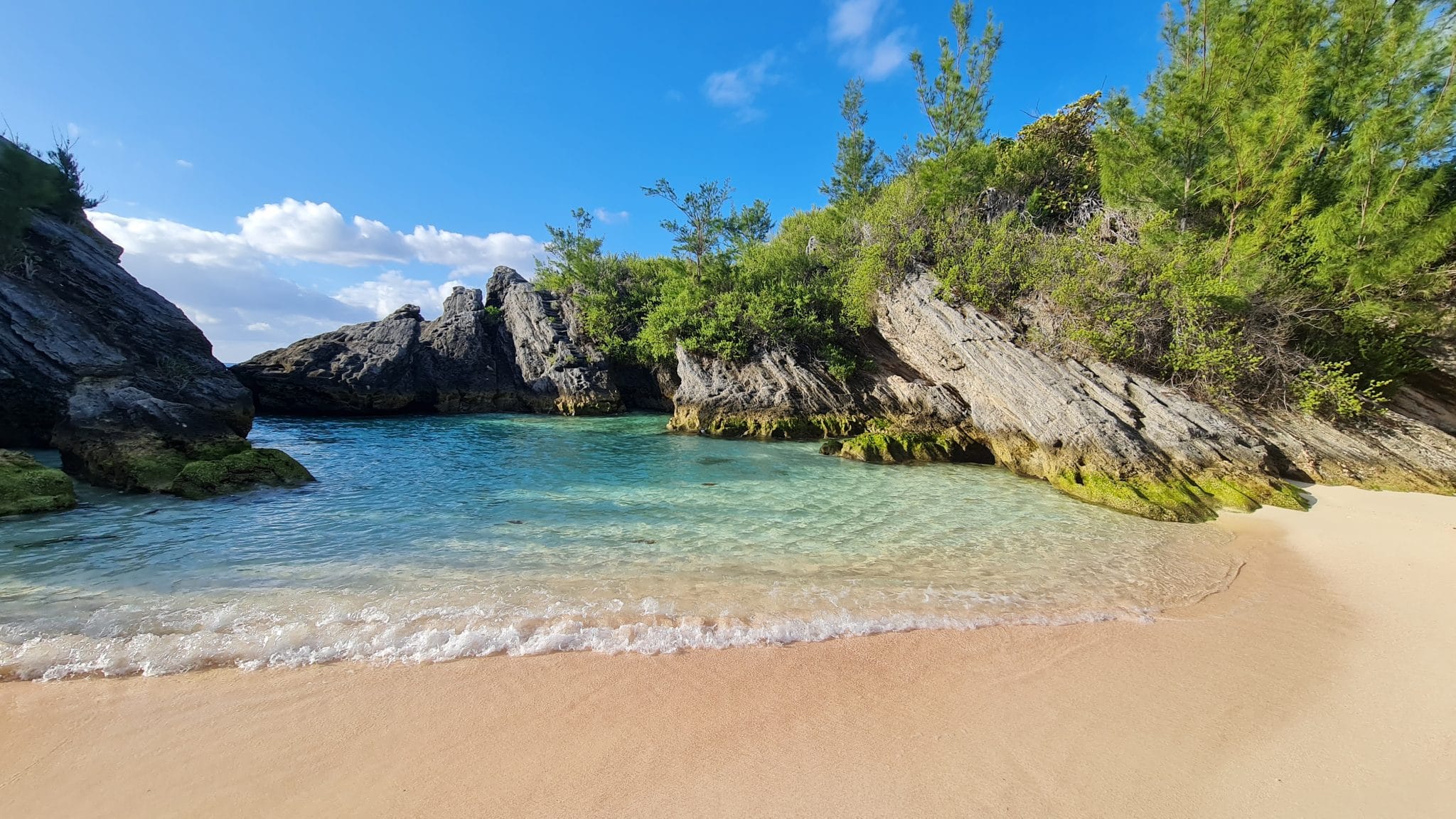Marine Life & Conservation Blogs
Diving in to protect out wonderful watery world
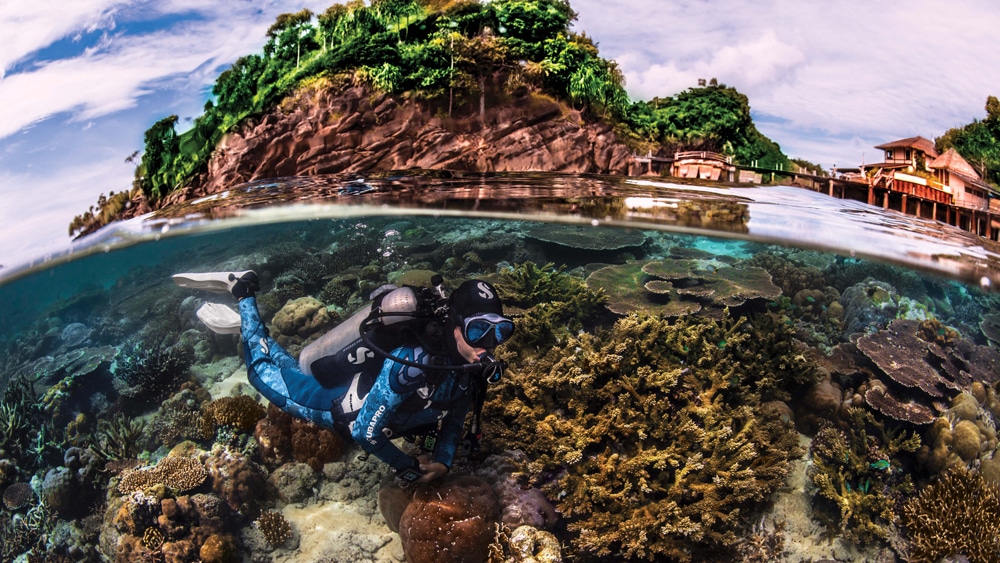
Water is one of the critical elements on our planet that gives us life. And although we all know this, the data is shocking when it comes to just how much we’ve collectively put this vital element at risk, threatening our planet’s – and our very own – existence.
In recent years we’ve grown more aware of the invisible plastic problem, with particles found in locations as remote as the Arctic and Antarctic Oceans. Plastic is in our water, soil and the air we breathe. But it’s in the ocean that they find their way into our food systems. It is now estimated for every pound of phyto-plankton, there are 6 pounds of plastic in the ocean.
Our global issue has become urgent. Last week, during the United Nations Environment Assembly, representatives from 175 nations passed a resolution for a globally binding treaty against plastic pollution, including recycling and cleanup measures, as well as curbs on plastic production. Many have agree this is the most important environmental accord since the 2015 Paris Agreement on climate change – and the first of its kind.
PADI’s 7 Ways To Help Improve Water Quality
As we recognise World Water Day, we invite you to think about the value of water. How is clean water important to your family, your livelihood, your culture, your wellbeing, and your environment? How important is it to you to keep that water plastic free?
A few small changes in your behavior can make a very big difference!
1. CHANGE YOUR BUYING DECISIONS + FORGET DISPOSABLE FASHION
Every buying decision you make has the power to change the world a little, and you should be aware of this. It’s how you start wielding that power for good. Right now, it’s estimated that fibers are, by count, the single largest contributor to watershed plastic pollution in developed countries. Synthetic fibers produce microplastics when washed. Since over 60% of fabric produced by the textiles industry in 2020 was polyester, that translates into 1.7 million tons of microfibers are released into the ocean every year!
Did you know that one fleece jacket could shed up to 250,000 pieces per garment per wash. New York City, alone, could has 6.8 billion microfibers flowing into its harbor every day. The problem is so severe the State of California just dedicated $3 million dollars to addressing it.
TOP TIP: Reconsider your fashion decisions and buy sustainable, organic materials. Check out these great long-term options from PADI Gear.
2. KEEP MICROPLASTICS OUT OF YOUR LOCAL WATERWAYS ON LAUNDRY DAY
Microplastics (teeny tiny pieces of plastic) have become a huge global issue polluting freshwater and saltwater waterways around the world. Scientists have found that washing clothes is one of the primary sources of microplastics that end up in the ocean. With every wash, plastic fibers shed from synthetic fabrics are making their way from washing machines into the water.
One way to keep plastic microfibers out of your local waterways is to incorporate clothing made from natural, non-synthetic materials into your wardrobe as much as possible. But for those items you already have, you can institute a simple change to washing to ensure that you can achieve up to 86% fewer fibers shed from synthetic textiles.
TOP TIP: For whatever clothes, bedding, and towels you have that are made from synthetic materials – Check out Cora Ball and Guppyfriend.
3. EVERY BLADE OF SEA GRASS COUNTS!
As seawater flows through seagrass meadows, sediment and particles suspended in the water column become trapped too. This means cleaner, filtered oceans – the natural way. Without seagrass, sediments are more frequently stirred up which decreases visibility, and there is nothing to stop land-based industrial discharge or storm water runoff from washing right onto delicate ecosystems.
Seagrasses occupy 0.1% of the seafloor, yet are responsible for 11% of the organic carbon buried in the ocean, helping mitigate the effects of ocean acidification on our coral reefs. Blue carbon ecosystems keep our coral reefs healthy in another important way too; by providing the foundations of life in our oceans.
Scientists estimate that at the current rate, we lose a seagrass meadow the size of a soccer field every 20 minutes. If more action is not taken immediately to restore these vital habitats, most may be lost within 20 years.
TOP TIP: PADI has partnered with The Ocean Foundation to support The SeaGrass Grow Program, empowering you to mitigate the carbon from your next holiday. You can donate to the program every time you book a trip with PADI Travel, or simply make a donation seagrass to be planted in honor of World Water Day.
4. CLEAN UP YOUR ACT!
Of the 8.3 billion metric tons of plastic we’ve collectively manufactured date, it is estimated only nine percent has ever been recycled. Approximately 11 million metric tons of this plastic end up in the ocean every year, with this number expected to triple by 2040.
According to National Geographic, 73% of all beach litter is plastic. Whatsmore, 90% of plastic polluting our oceans is carried by just 10 rivers.
One of the easiest ways to help waterways in your local area is to dispose properly of trash and also pick up any trash you find. With most land-based debris eventually making its way to the water, simply picking up litter anywhere in your neighborhood will make a difference. It doesn’t matter how near or far you may be from a lake, river, or beach.
PADI has partnered with The Ocean Cleanup to tackle our global ocean plastic pollution. Together, the organisations are mobilizing divers at a local level to take action for global impact. This partnership pairs The Ocean Cleanup’s advanced technologies with the passion of the global dive community to inform ocean-friendly waste management policies in countries worldwide through data collection.
TOP TIP: You can join in on the efforts of PADI and The Ocean Cleanup too. Whether you choose to organize a formal clean up or simply pick up what you find, you’ll know that you’re making a direct positive impact on the health of the environment around you.
5. REDUCE SINGLE USE PLASTIC
These past few years of pandemic have been especially hard on all of us – including the plastic. What was considered taboo and even banned in some places was reintroduced and re-accepted as the norm to ensure we were staying germ free. Plastic bags, take out containers, plastic straws and utensils and plastic wrap all found their way back into many of our lives and homes.
We’ve learned a lot – and it’s time to regroup. Be conscious of limiting the amount of single-use plastic wherever possible. The next time you order out, be conscious of not taking plastic straws, cups or utensils with you for that takeaway meal and use your own at home. Stop using plastic bags, plastic wrap and single use items – there’s plenty of other options from biodegradable materials to silicone to beeswax wraps. It’s time to give our waterways a break.
TOP TIP: PADI loves the idea of replacing plastic with single use items that offer a lot more benefits than reusability!
6. LEARN TO DIVE (OR MERMAID!) + BECOME AN UNDERWATER TRASH COLLECTOR
Did you know that the majority of divers have also appointed themselves as ocean trash collectors? PADI Divers have the unique ability to physically remove and report marine debris beneath the surface. The PADI AWARE Foundation launched Dive Against Debris over a decade ago and since then more than 30,000 divers in over 50 countries have taken part in removing plastic from our oceans. PADI comm track to remove 2 million pieces of trash by next month!
Don’t have a desire to dive? No problem. PADI also offers mermaid courses. Our PADI Mermaid Team also hosts “Tails that Thrash Trash” events to put those magical moments to good use.
If you are already a diver or mermaid, you can take a PADI Specialty courses authored by PADI AWARE help divers lead action on marine debris prevention. For more than 25 years PADI AWARE has been uniting water enthusiasts across the globe. Earning a PADI AWARE Dive Against Debris specialty, you’ll learn more valuable and easy ways to take meaningful action to help safeguard waterways you love.
TOP TIP: There is no better reason to become a PADI Open Water Diver than the fact that once you are certified you can have a literal hands-on role in saving the ocean and helping eliminate a side of plastic from our food menu once and for all.
7. GIVE PLASTIC A NEW LIFE
Making small changes on an individual level can collectively result in big change for our blue planet. Where possible, choose recycled plastic products. From sunglasses to outdoor furniture and dog collars to running shoes, there are so many options when it comes to purchasing items made of recycled plastic.
To make finding these products easier than ever, PADI has created an ocean-first marketplace that amplifies your ability to make a positive impact. PADI Gear offers the items you need – made out of materials that result in real change. From face masks made of recycled ocean plastic, to rash guards made of retired fishing nets, to towels spun from ocean bound plastic – through product sales, PADI has already removed more than 58,600 pounds of plastic from our waterways – that’s more than 1.8 million plastic bottles.
TOP TIP: In honor of World Water Day, you can save 20% on the entire “Plastic Free Seas” collection with code: PLASTICFREE20 now.
By celebrating all the different ways water benefits our lives and incorporating some or all of the seven tips above, collectively we can value water properly and safeguard it effectively. Join PADI in living everyday like it’s World Water Day!
Blogs
Saba’s Plan for a Coral Comeback

Saba has an exciting new initiative to restore its coral reefs. This new project, running from 2024 to 2026, will focus on reviving key species in the island’s underwater ecosystems. With a collaborative team from the Saba Conservation Foundation (SCF) and Van Hall Larenstein (VHL) University of Applied Sciences, the project aims to restore both corals as well as sea urchins.
This initiative is centered around coral restoration, specifically reviving two essential coral species—staghorn coral (Acropora cervicornis) and elkhorn coral (Acropora palmata). By mapping parent colonies and using a technique known as coral gardening, SCF will create and maintain coral nurseries. These corals will eventually be outplanted at key reef sites around Saba to not only expand the number of coral colonies, but also provide essential fish habitat. The project focusses on installing coral nurseries, training staff with the newest techniques and starting with the restoration of key reef sites.

Reef Cleaners to the Rescue
It’s not just corals getting a makeover—this project also shines a spotlight on the essential role of grazers, particularly sea urchins. VHL is leading the charge on cultivating and restocking two key sea urchin species, West Indian sea egg (Tripneustes) and long-spined sea urchin (Diadema), known for their ability to keep algae in check. By removing algae, which are important competitors of corals, they help the coral to thrive. By restoring these “reef cleaners,” Saba’s project will give corals the breathing room they need to grow, setting the stage for a healthier, more balanced marine ecosystem.
From Tiny Urchins to Big Goals
The project will be funded as part of the Dutch Government’s Nature and Environment Policy Plan (NEPP) 2020-2030 for the Caribbean Netherlands, a comprehensive initiative aimed at conserving and restoring the unique natural environments of the Dutch Caribbean islands, including Saba, St. Eustatius, and Bonaire. This project is aiming for big milestones: build and maintaining coral nurseries, the expansion of urchin cultivation facilities, and the creation of a dedicated research center. By 2026, the project hopes to ramp up coral and grazer restoration, with the ultimate goal of extending these efforts across the Dutch Caribbean. By linking local initiatives to broader regional goals, Saba’s restoration project promises to leave a lasting impact on both the environment and the community.
Find out more about the DCNA at dcnanature.org.
Blogs
Reef-World marks two decades of marine conservation: strengthening impact amid coral reef threats

Empowering ocean stakeholders to tackle future challenges and ensure the survival of coral reefs and humanity
2024 marks the 20th Anniversary of The Reef-World Foundation’s tireless efforts for global coral reef conservation. The UK charity is the international coordinator of the UN Environment Programme’s Green Fins initiative, known as the leading voice in sustainable marine tourism. Today, Reef-World released its 2023-2024 Impact Report outlining a year of substantive growth and impact in its marine conservation programmes.

Impact Report Highlights:
- Impressive improvements in environmental behaviours to protect coral reefs by the marine tourism industry as the global participation of Green Fins increases.
- Continued capacity building for government and NGO staff to effectively manage marine tourism activities in Asia, Caribbean and Red Sea regions.
- For the first time in Green Fins’ 20-year history, tourism operators have achieved ‘Best Environmental Performer’ status by demonstrating the lowest possible environmental impact in their environmental assessments. In 2024, three dive operators achieved this challenging milestone.
- Significant increases in global participation of Reef-World’s innovative digital conservation tools.
- 138 Green Fins dive operator members achieved the strict threshold for PADI Eco Center recognition.
- Developed four new educational materials and translated two into 16 languages to support the marine tourism industry in achieving sustainability targets.
- Establishing a new Reef-World Development strategy and recruiting new roles – Development and Programmes Managers.
- Reef-World’s board welcomes new Chair and Trustees strengthening organisational leadership.

Reef-World started as a one-person mission to inspire and empower communities to act in conserving and sustainably developing coral reefs and related ecosystems. Today, the team of 12 continues to meet this mission by inspiring and empowering the global marine tourism community to be exemplary sustainability leaders by using the Green Fins guidelines and tools to simultaneously use and protect the world’s precious reefs.
In April 2024, the fourth global coral reef bleaching event was confirmed. Reef-World’s work has never been more urgent as the marine environment, and the benefits they provide humanity, continue to be eroded by global threats. The reduction of local threats, like those from the marine tourism industry, is an essential step to ensuring a future where coral reefs survive and continue to support the millions of people who depend on their ecosystem benefits. Reef-World’s work buys time for coral reefs and related ecosystems to be resilient to the impacts of global threats.
“Right now our corals are facing the greatest fight of their existence as the terrifying predictions of the steps towards their complete extinction are starting to come true. But all is not lost, reefs are resilient and they have existed on this planet for millions of years. We must take action now, to buy time for reefs by reducing threats facing them and allowing them to react and adjust to the changing environment they need to survive in.” – Chloe Harvey, Executive Director
Looking Forwards:
Like coral reefs, the Reef-World team needs to be resilient in the face of the complex challenges of the conservation sector. Reef-World has invested significantly in developing a Culture of Care to ensure the well-being of its team on a daily basis, continuing to be an exemplary employer to enable its team to best achieve the mission for coral reef conservation.
With the foundations of a Culture of Care and organisational development laid, Reef-World is emerging from the end of a natural organisation life cycle, that brings the challenges of growth and scale, stronger than ever. With a new strategy in place to generate much needed resources, Reef-World is excited for the opportunities to leap forward, continue to scale our impact and lean into new innovations and untapped opportunities for marine conservation.
We continually strive to become a forward-thinking organisation that delivers on our goals and commitments to our stakeholders with fresh approaches and not being afraid of steering away from a “normal approach.” This approach is not only applied to our programmes of work but also internally and carries over to our Culture of Care for our team.” — JJ Harvey, Operations Director

The Reef-World Foundation is immensely grateful for the continued support of its grant funders: UN Environment Programme, IUCN’s Blue Natural Capital Financing Facility, Adventure Travel Conservation Fund, PADI Aware Foundation, and World Nomads Footprints Program.
Reef-World would also like to express its gratitude to international partners whose vital support has resulted in significant tangible benefits for our work and mission: PADI; Professional SCUBA Schools International (PSS); Explorer Ventures; 1% for the Planet; ZuBlu; Snorkel Venture, GSTC; Dive O’Clock; Seven Dragons; DiveAssure and Eco Beach, without whom these achievements would not be possible.
The full 2023–2024 Annual Impact Report is available on Reef-World’s website.
-

 News2 months ago
News2 months agoIconic SS United States to become the World’s Largest Artificial Reef
-

 News3 months ago
News3 months agoBook Review – 52 Assignments: Underwater Photography
-

 Gear News3 months ago
Gear News3 months agoDYNAMICNORD – New German diving brand enters the British market
-

 News3 months ago
News3 months agoExploring Cenote El Pit: A Diver’s Dream
-

 Gear News3 months ago
Gear News3 months agoTry BARE drysuits (and maybe even win one!) this Friday with Sea & Sea at North West Dive Fest
-

 Marine Life & Conservation3 months ago
Marine Life & Conservation3 months agoBook Review: Coral Triangle Cameos
-

 Blogs2 months ago
Blogs2 months agoDive the Egyptian Red Sea this Autumn with Regaldive
-

 News3 months ago
News3 months ago2024 Ocean Art Underwater Photo Competition Announced


